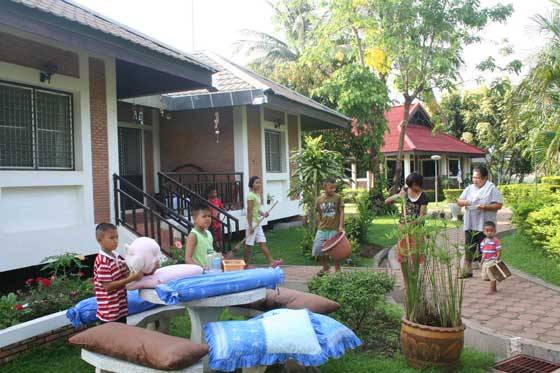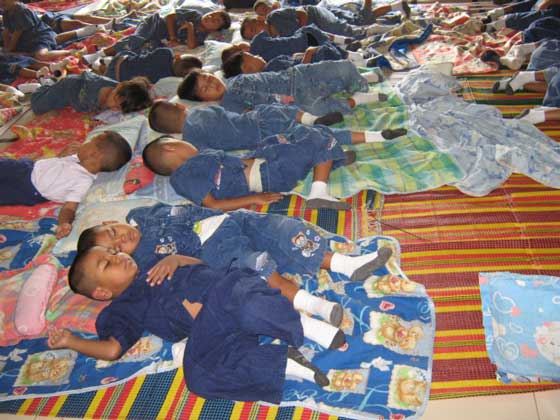A poor province on the border with Laos

During and shortly after the construction of the "Friendship Bridge" across the Mekong in the 1990s, Nongkhai experienced an economic boom. However, the Asian economic crisis brought an end to that. The region is rather poor; access to education or health services is difficult for many of its inhabitants. The city of Nongkhai is a popular tourist destination though, and tourism has become the mainstay of its economy.
Nongkhai's location on the border does not only promote trade with Laos, it also encourages some illegal activities: trafficking of people is one of the problems the province faces. Children from Myanmar, Cambodia, China, Laos and Vietnam are taken to Thailand for commercial sexual exploitation, to sell and beg on the streets of big cities, or to work as domestics. The government tries to prevent this by passing the required laws, but enforcing them often turns out to be more difficult than expected.
SOS Children's Villages supports the children of Thailand's north-eastern corner
Children often have to beg from tourists or help their parents in the fields in order to earn money and raise the family income, which means they have to work long hours and do not have time to attend school. They are exposed to pesticides and often have to use dangerous tools. Ethnic minorities, stateless and migrant children are most at risk of engaging in the worst forms of child labour.
In order to reach out to the families of the north-eastern province and support their children, SOS Children's Villages decided to set up an SOS Children's Village in Nongkhai. The programme is located in the government district of the provincial capital, with markets, schools and hospitals close by.
What we do in Nongkhai

Care in SOS families: Children whose families can no longer take care of them can find a loving home in one of the eleven SOS families. The children from the SOS families attend nearby schools or the SOS Kindergarten together with local children, which helps them become part of the community. This is important for their integration into society when they grow up.
Education: SOS Children’s Villages tries to strengthen local families by offering day-care for their children at the SOS Kindergarten. For poor families, especially for single parents, it is important to have a place where professionals look after their children. This enables parents to work and earn a living, without having to leave their children unattended.
Support for young people: SOS Children's Villages offers special programmes for young adults. They can live together in a house while they attend vocational training or higher education. With the support of qualified counsellors, the young people develop perspectives for their future, learn to shoulder responsibility and increasingly make their own decisions.